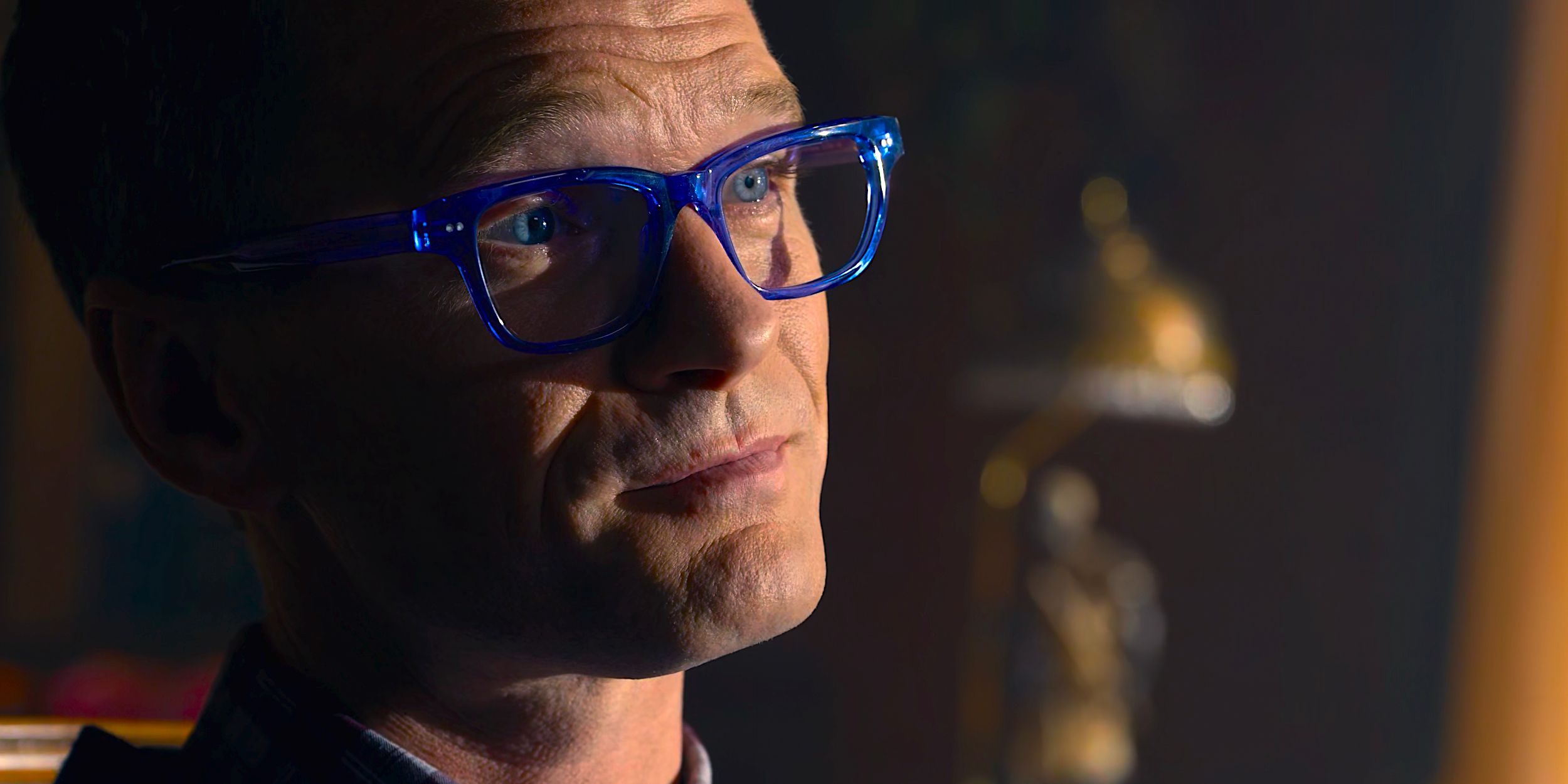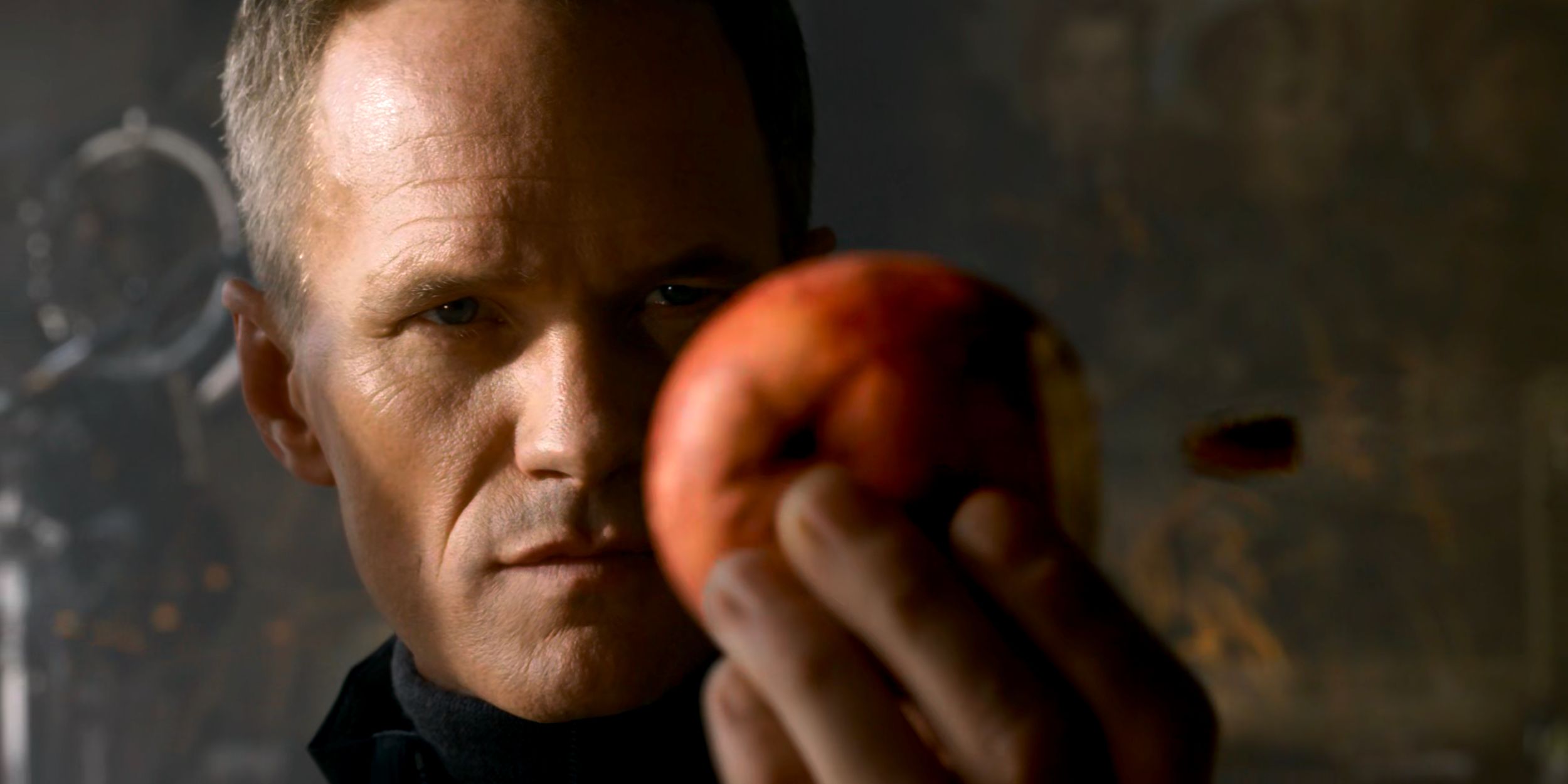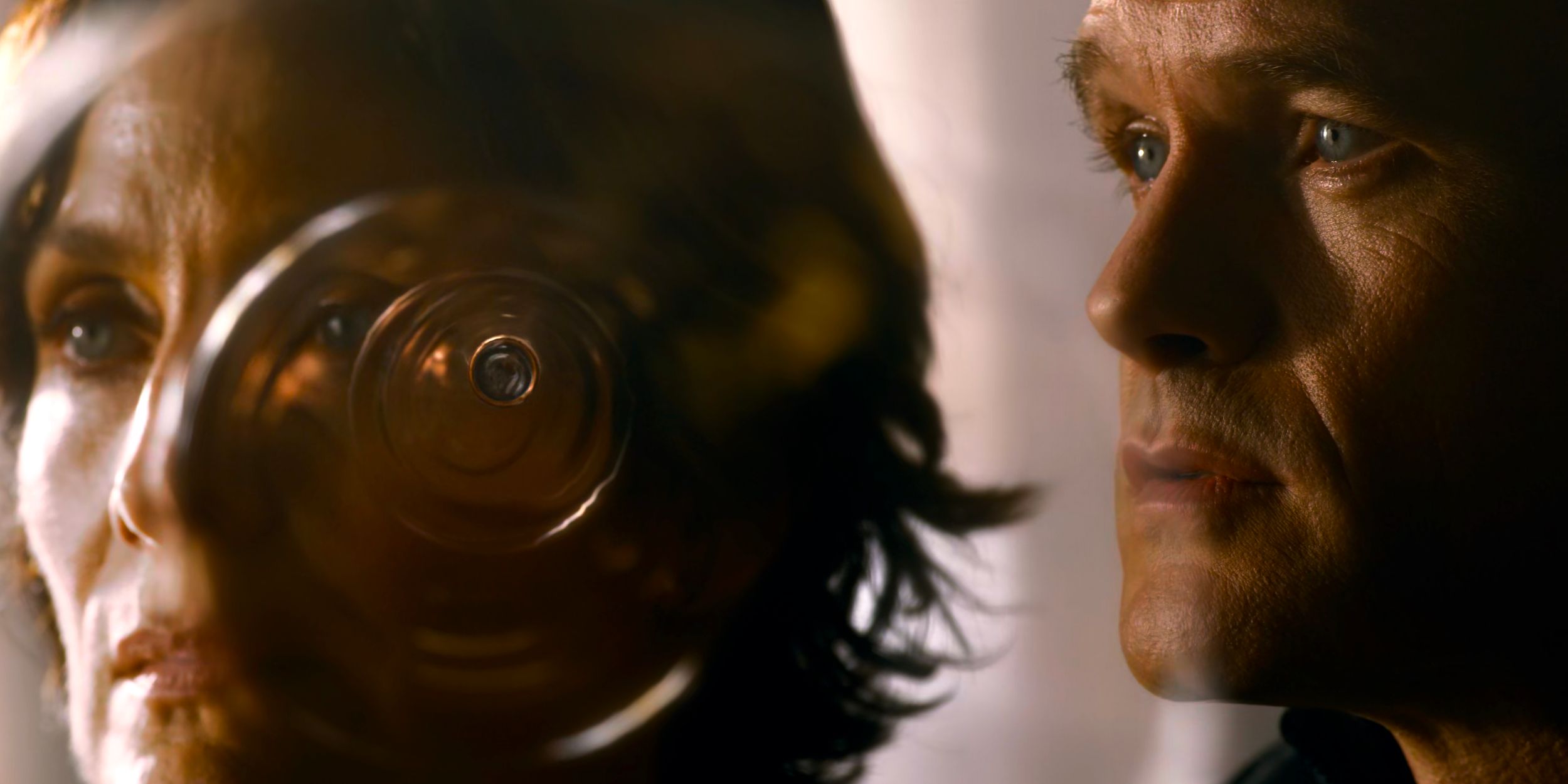WARNING: The following contains spoilers for The Matrix Resurrections, now in theaters and on HBO Max.
The first hour of The Matrix Resurrections plays out in a fashion eerily similar to the first Matrix film. Thomas Anderson, previously Neo, finds himself in the Matrix, living out a life that seems uncomfortable and surreal. He questions his own reality and is freed by a group of intrepid rebels from a free human city. He encounters Morpheus and Agent Smith, each with a new actor to portray them. It really seems like nothing's changed since 1999, and the film even goes so far as to lampshade this by remarking how "we're still telling the same stories we've always told, just with different names and different faces."
The glaring exception to this repetition is the Analyst, a character played by Neil Patrick Harris who was kept out of the direct spotlight in trailers. And for the first act of the film, he really seems to be nothing more than Neo's therapist, a handler put in his path by the Matrix to ensure he doesn't go rogue again. He convinces Neo that the events of the first three films were products of Thomas Anderson's work as a game designer and that any deviations from the reality he experiences now are products of a "powerful imagination." It's a different tack from how Neo was imprisoned in the Matrix originally and speaks to a different set of societal norms.
Neo isn't being oppressed by the dull drudgery of 90s corporate culture or government suits. Instead, he faces manipulative gaslighting and the exploitative nature of modern-day capitalism's habit of looking backward instead of forwards. And at the center of all of it if sits the Analyst, innocuous and well-meaning. He even vanishes from the film until Neo returns to the Matrix to rescue Trinity. The aged protagonist faces off against Agent Smith and a ragtag group of Exiles, but the real danger emerges when the Analyst returns, suavely stepping in between Neo and Trinity and morphing in character almost entirely.
Gone is the mild-mannered, polite doctor from before, and in his place is Harris in all of his hammed-up, supervillain glory. It's not a role the actor is unfamiliar with, with Dr. Horrible's Sing-Along Blog serving as a prime example of the over-the-top dramatic flair Harris works into his performance. He even gives a self-congratulating monologue, explaining to Neo that he and Trinity were resurrected because their close proximity and imprisonment keep the rest of the Matrix similarly unaware. In contrast to his predecessor, the Architect, the Analyst defines himself by the study of human emotion.
There's an infamous chorus on the internet that might not be accurate but is certainly ubiquitous: "facts don't care about your feelings." The snide phrase is intended to demean the role of subjectivity and empathy in modern discourse, but it's the exact same dichotomy that the Analyst draws on when he explains his modus operandi. He puts forth the idea that humans don't care about facts; they care about their own feelings. He doesn't try to make things perfectly convincing. Instead, he puts what people want just outside of their reach so that they can strive towards it while desperately clinging to what they have. And to exemplify his particularly noxious philosophy, he gives Neo an ultimatum. Either he can return to the Matrix, or the Analyst will kill Trinity. Neo has to willingly subject himself to torment or the only thing he loves will be dashed against the rocks.
There's also the power that lets the Analyst monologue so effortlessly without having to worry about a fist to the face: bullet time. He moves around and rattles off his evil plan "faster than [Neo] can blink." It's a power that makes total sense for a digital foe and lends him an ironic sort of danger that the film directly highlights. While other Matrix antagonists like Smith or a machine army might take Neo on face-to-face, the Analyst relies more on misdirection and redirection. He takes Neo's strengths, whether they be bullet time or his love for Trinity, and uses them against him.
Casting Jonathan Groff as a new Agent Smith was a smart call. The actor does a terrific job in portraying the same understated malice as Smith but also lends the character something that's entirely his own. But leaving him as the only villain wouldn't have worked, and that's why the film needs the Analyst. It already feels like too much of a retread of the first film, with a similar premise and plot structure. The context around it may have changed, but that's not enough to justify a whole separate film. It's Harris as the Analyst that makes it feel like a different story, embodying how the world has changed since Neo's first appearance. He's the voice of the insipid, manipulative, self-congratulatory evil that people face in their everyday lives today. And it's his eventual downfall that shows how the ideals Neo champions are still worth fighting for.
To see the Analyst steal the show, The Matrix Resurrections is in theaters now and streaming on HBO Max.



